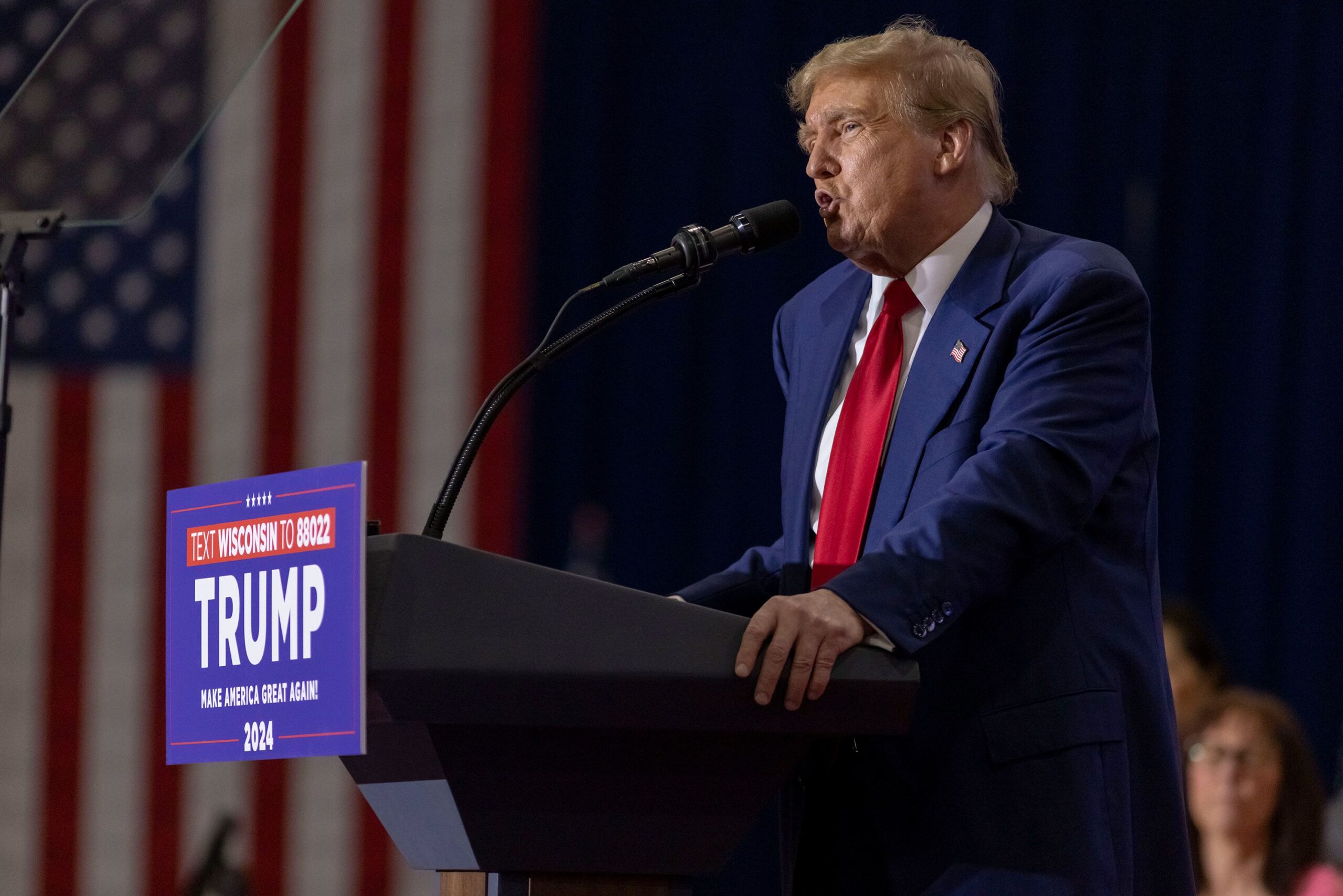Over the course of 370 days since his first indictment, former President Donald Trump has waged a relentless rhetorical war, a strategy honed during his business career and eight years in politics. This strategy has served as both a public defense and a political message during a time of unprecedented legal challenges. However, beneath the constant repetition, a stark reality emerges.
Trump, a former president known for his unapologetic breaking of norms and constant messages of grievance, vengeance, and retribution, is not merely making empty threats. His rhetoric is backed by a policy and personnel infrastructure, designed to turn his words into action. His promise to direct Justice Department investigations is supported by allies who see his potential second term as an opportunity to maximize presidential authority. His threats to target political enemies are backed by planned executive action.
Despite his constant battles with the system and its guardrails during his first term, the scales seem to have tipped in his favor. As a Republican official in regular communication with Trump’s inner circle told CNN, “Democrats hit first, so we’re going to hit back harder.”
However, the allegations made by Trump that the Biden administration directed the investigations against him have been proven false. When confronted with this fact, the official responded, “That’s what he believes. That’s what his people believe,” adding, “And unlike last time, this is his party now.”
The idea of a former president claiming the party as his own while being the Republican Party’s nominee for a third consecutive election may seem nonsensical. Yet, it is a critical factor in understanding why this moment for Trump and his supporters is so different from any previous one.
If Trump manages to evade or delay his legal troubles and win the presidential election in November, he and his allies will enter the White House more emboldened and powerful than any recent administration, with a more expansive view of presidential authority. This is an opportunity that Trump and his allies are keen to capitalize on.
“We are going to finish what we started,” Trump pledged during a March 2023 rally. “We will totally obliterate the deep state.”
Trump’s 2024 Rhetoric
Trump has framed the 2024 campaign as a battle to save the nation from an apocalyptic implosion. He presents himself as a vessel for his supporters, their “retribution,” their “warrior,” their “justice.” But do his words hold any weight, or are they merely a ploy to rouse his base?
Over the past year, Trump has made numerous threats against his political opponents, including appointing a special prosecutor to target President Joe Biden and his family if he is reelected. Despite these statements, Trump remains a strong contender in national and key swing state polling. His base of die-hard supporters remains unshaken, suggesting that many voters either don’t mind his extreme rhetoric or have become so accustomed to it that they tune it out.
Trump’s penchant for retribution is not a new development. His 2016 campaign was marked by calls to jail his Democratic opponent, Hillary Clinton. While his Justice Department never pursued charges against Clinton, Trump did raise the idea of prosecuting her while in office. The list of opponents – and former allies who became opponents – who Trump suggested for potential prosecution was extensive.
Trump’s Second Term: A Different Landscape
If Trump secures a second term, he will enter the White House with most of his powerful Republican critics on Capitol Hill gone. Congressional Republicans nowadays more often seek to elevate and advance his wishes. Trump has also acknowledged that he made mistakes with some of the people he surrounded himself with when he entered the White House in 2017.
Trump is now surrounded by advisers who not only espouse his “America First” approach but are also hardened by their own lessons learned from the first administration. His campaign has released an extensive series of policy outlines, and a network of outside groups filled with former top Trump administration officials and loyalists have dedicated millions of dollars to build out the policy and personnel resources that will almost certainly be drawn upon should Trump win a second term.
Trump’s Quest for Retribution
Trump and his campaign have publicly tried to downplay his intentions for personal retribution. However, his second term policy plans, his private impulses during his first term in office, and his long-standing affinity for retribution suggest otherwise. Trump’s desire for revenge has been a constant theme throughout his career, even before his first campaign. As he told Charlie Rose in a 1992 interview, “If given the opportunity, I will get even with some people who were disloyal to me.”

